Universal Awkwardness
1.
One year ago, 尬 (pronounced gà) was still one damn lonely, boring Chinese character.
Unlike the majority of Chinese characters that could pair up with other characters to become words with multiple meanings, 尬gà had one and only one buddy to pair with: the character 尴gān. Together the two forms the word 尴尬gān'gà, which translates to – you’ve guessed it – awkwardness.
Yep, THAT awkwardness. No ambiguities. No complexity of meanings that causes headaches in translation. Admit it or not, feeling awkward is simply an inevitable part of human adulthood, aka a long and dreadful period of constantly having to deal with other human beings through what’s known as socialization. Every day in life people meet with other people and get awkward(s), pretend they don't, and then awkwardly get on with life. Awkwardness as a human emotional state is just so straight-forward, universal and easily-relatable that it makes explaining it seems unnecessarily stupid.
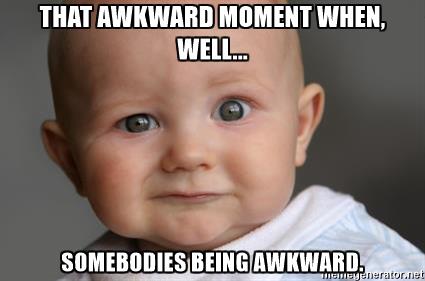
Enough mumble about awkwardness, now let’s go back to the lonely Chinese character we are meant to focus on here - 尬gà.
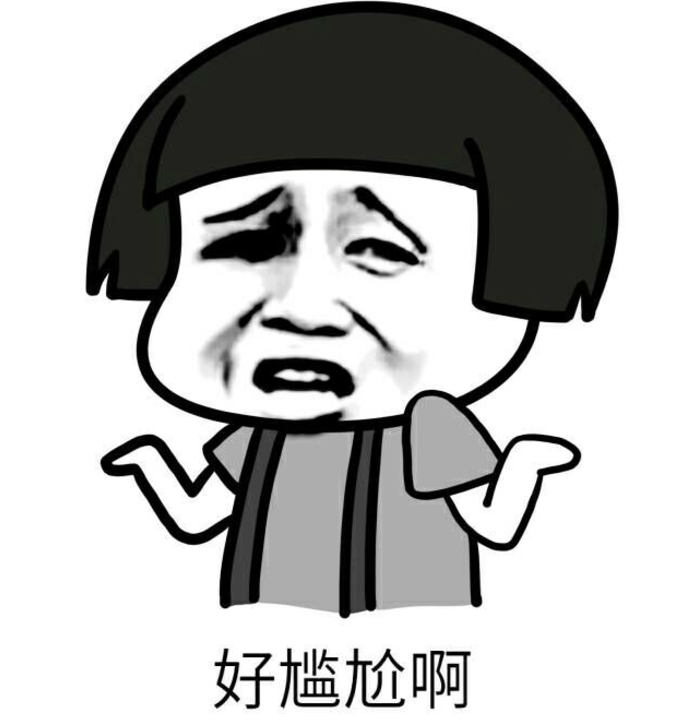

2.
Thanks to the powerful and radically developing Chinese Internet, 尬gà, the little Chinese character that was stuck with a dauntingly boring linguistic life encountered new life opportunities in 2016. Within a year of time, it has managed to get rid of 尴gān, it’s long-fixed character partner, to transform into an independent, popular adjective that got paired with numerous Chinese verbs: 尬舞(dance), 尬唱(sing), 尬聊(talk), 尬煮(cook)....the combinations invented so far are countless.
As more Chinese netizens adopted this “尬gà +verb” idiom both online and offline, local medias began to take notice and talk about “gà Culture” as this new hip youth phenomenon. Some folks even went as far to argue that 尬 gà took over the position of 丧sàng as the most important Chinese internet slang of 2017.
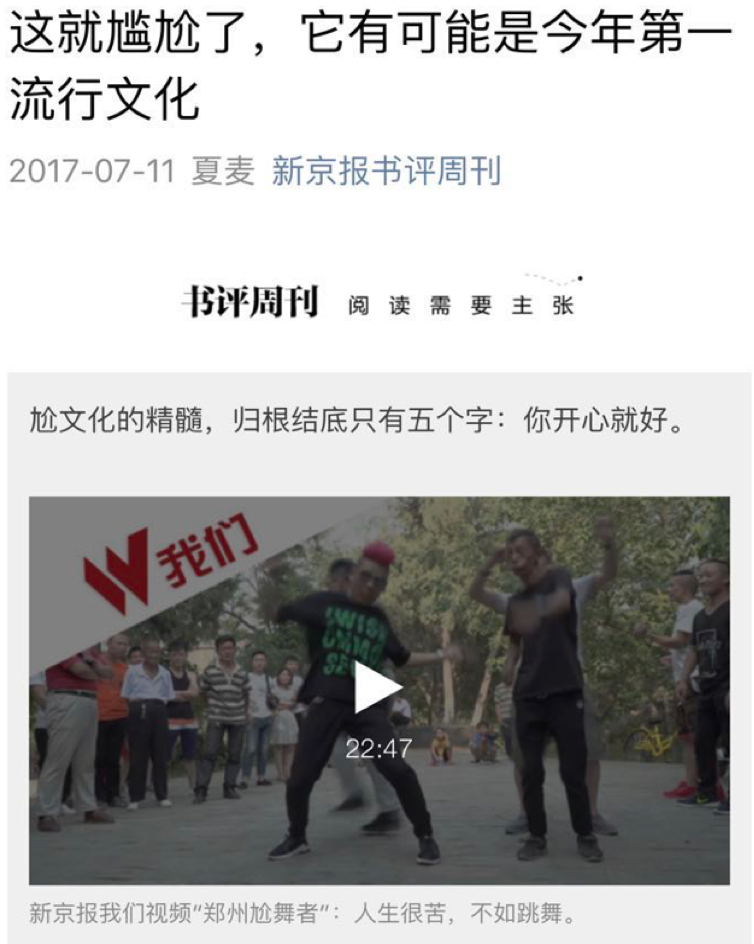
A recent Chinese media commentary remarks “Gà Culture” as the No.1 trendy slang this year.
Just Dance
For those of you from Taiwan or are familiar with the Taiwanese Hokkien (闽南语), you’d probably be rolling eyes already – what’s the fuss about this “gà+verb” idiom? The Taiwanese have been talking it for god knows how long now!

A Taiwanese news article titled “mainland Chinese netizens obsessed with Taiwanese slangs”.
Taking the example of 尬舞, "gà-dance" :
In Taiwanese Hokkien, the character 尬gà also means competition or race, and the term 尬舞gà-dance was adopted by local hip-hop dancers referring to breakdancing battles on streets. When the phrase travelled to mainland China last year however, the meaning turned to another direction: instead of describing dance competitions, 尬舞gà-dance in the context of mainland Chinese internet culture literally just attributes to, well, awkward dance.
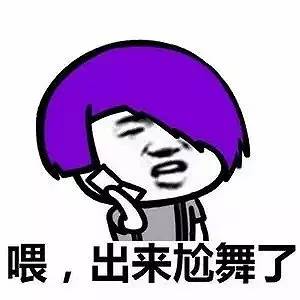
How did awkward dance emerge as both a term and a phenomenon on The Chinese Internet? To answer, we need to walk through two questions: firstly, why (did the Chinese) dance? secondly, why awkward? (basically, why not happy/angry/clumsy/crazy dance?!)
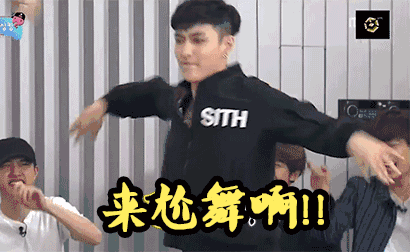
Like teens around the world, China’s young urban generation grew up with American pop music, nightclubs and EDMs over the past decade. While the young folks danced to Hip-hops rhythms and K-pop songs, China’s retired, enthusiastic grannies have also been actively participating in the public dancing scene. They’d square-dance everywhere, occupying city parks, streets and underpasses with their passionate body movements and energetic elbow swings (check this article for the huge market behind this phenomenon). Looking from the outside (thanks to the instantness of shooting and sharing videos on mobile devices), it seems obvious that the Chinese as a whole have been dancing a lot more in recent years for the sake of self-expression as well as for leisure/exercising/social purposes.
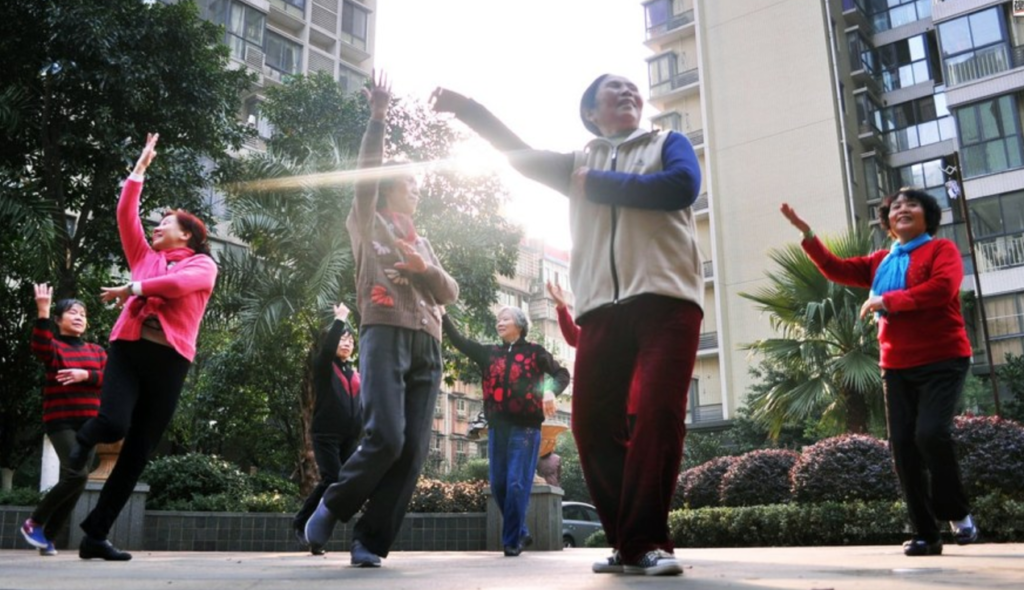
But still, why "Awkward" dance ?
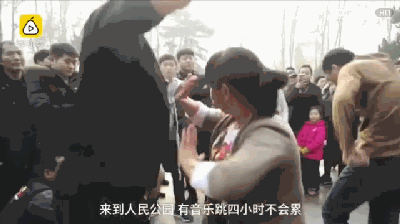
In summer 2016, a Chinese teen girl/children drama named Magical Dance Girl Duo-Fa-La was aired. Featuring a group of absurd teen characters, a ridiculously dumb storyline, and the most hilarious, eye-burning special effects one could imagine (the Chinese netizens often joke about this type of TV shows as having “五毛特效”, aka “visual effects produced with a 5-penny budget”), the show quickly received tons of negative reviews from angry Chinese audiences.
Well deserved.
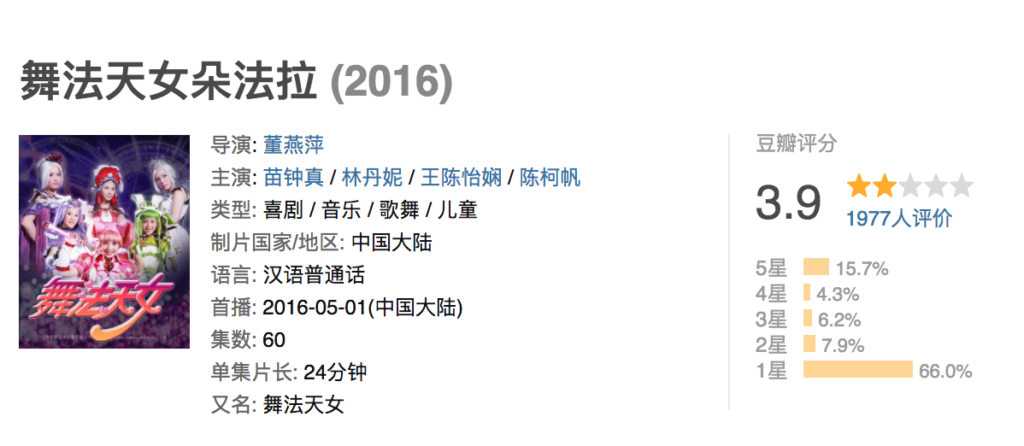
Despite its horrible quality, the show made at least one bit of positive contribution (if you would call it so) to the general public: it inspired the creative netizens to recognize 尬舞, gà dance, as officially a thing (thanks to the group of dramatic teen girls in the show who'd always abruptly start dancing to unleash their magic power). Yes, the phrase was borrowed from Taiwanese, but the gà dance we are talking about here has nothing to do with hip-hop or dance battle - it literally just means awkward dancing, everywhere, anytime.
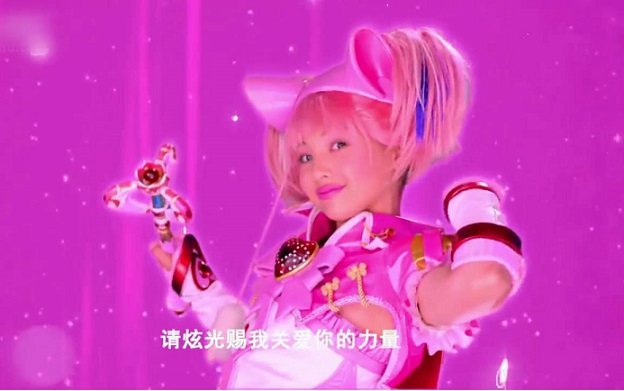
A bizarre TV show, along with the increasing public passion for dancing (including free-spirited body movement as performed by many Chinese grandmas and grandpas), together injected black-humor to the idea of gà dance. Feeling tired of life? Just dance! Don’t know how to move/what to do with your body? Just play the music louder and shake your booty, gà dance LIKE A BOSSSS!
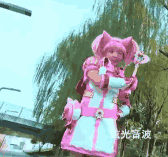
"I am a fairy so I danceeeee!"
Just a few days ago, a short clip went viral on the Chinese Internet featuring a middle-aged Chinese guy who, after violating traffic rules and being stopped by the police, suddenly started to gà dance like a wild horse in the middle of the street. The video has already been remade into many hilarious versions with different dance musics at background, and people online are now calling him as the dear “尬舞哥 gà-dance bro”.
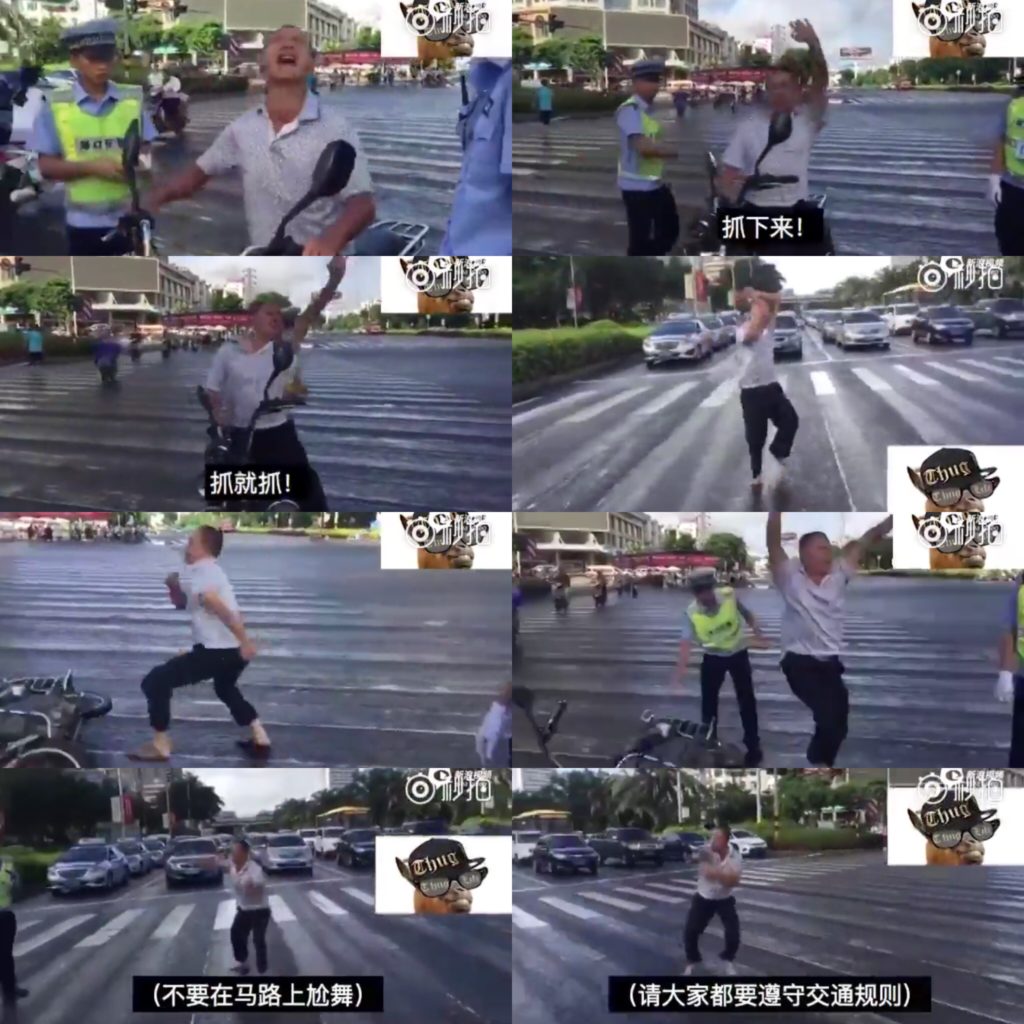
You Dance, I Talk
Not sure if you could nail gà dance? Don’t worry, there’s another space prepared for you to fulling unleash the gà inside your soul – 尬聊, aka awkward talking.
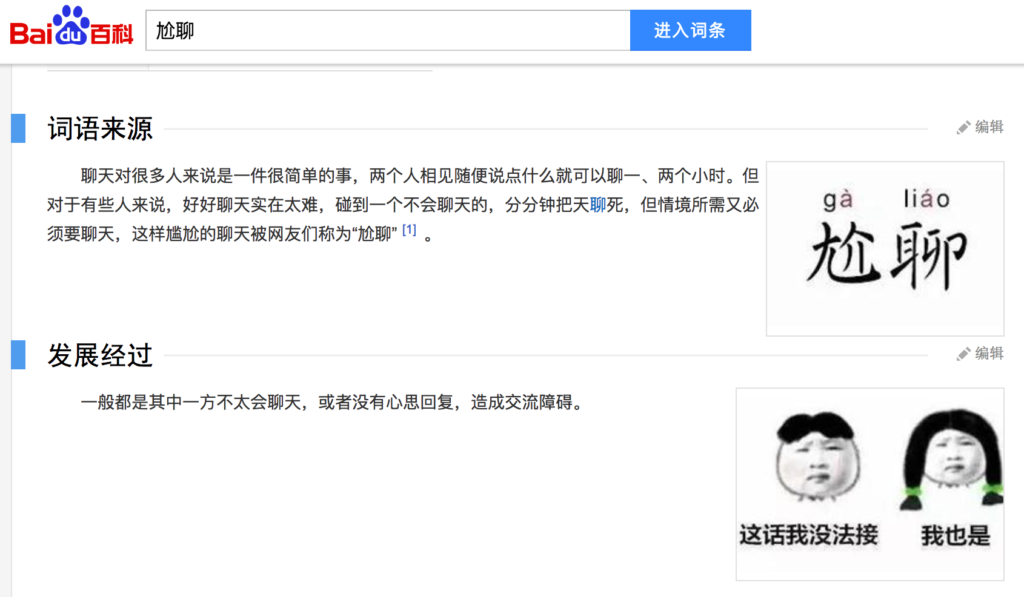
To fully understand the discourse of gà talk, we have to first bring up its English counterpart - you'd probably guessed it - the idea of SMALL TALK.

As this google definition and Wikipedia tells, small talk, a term first studied in 1923 by Polish anthropologist Bronislaw Malinowski, literally means conversation for its own sake. In today’s western, social-oriented culture, small talk is valued as a phatic communication skill that delivers positive social signals: it shows that you care (even though you don’t), and that you are willing to bond while still maintaining some sorts of polite interpersonal distance with whoever you are talking to (for those of you familiar with Chinese, think about the terms “客气” or “寒暄”, which loosely translate to similar meanings as well).
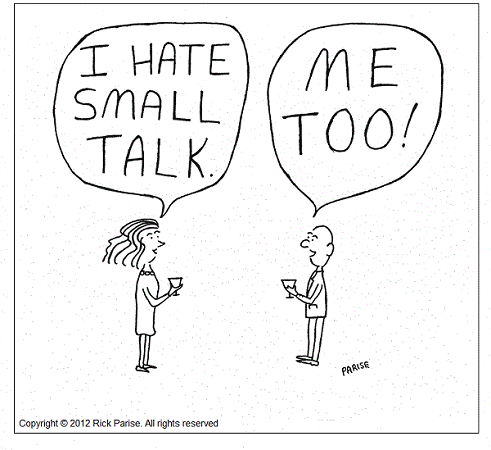
Is gà talk similar to small talk? Oh yes.
Can we understand gà talk as the Chinese equivalent of small talk? Well not necessarily, since gà talk could also refer to scenarios of which one's so bad at talking that the conversation is dreaded to a dead end (hence everyone is in awkwardness together, yay!).
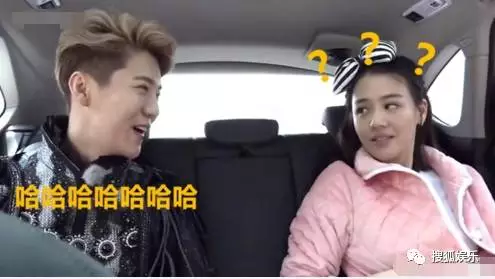
Why did gà talk become such a trending topic on the Chinese Internet this year? After diving into online research and reflecting upon our personal experiences, we landed on two possible explanations:
1)The huge amount of poorly produced, overly stretched domestic TV shows that are full of awkward, pointless conversations just to fill time.
In recent years, China’s domestic TV series are getting longer and longer (Chinese TV dramas are normally priced based on episode counts; to get a good deal with investors and TV stations, production houses would thus slow down the pace of storytelling and stretch the show into as many episodes as possible). For instance, Ze Tian Ji and Chu Qiao Zhuan, the two hottest TV series this year featuring some of the most popular “Little Fresh Meat” actors in China, both had over 50 episodes with each episode running for 45 minutes+. The result? Lines after lines of meaningless, dry conversations between characters accompanied by horribly fake acting - basically, a lot of gà talk performed on screen.
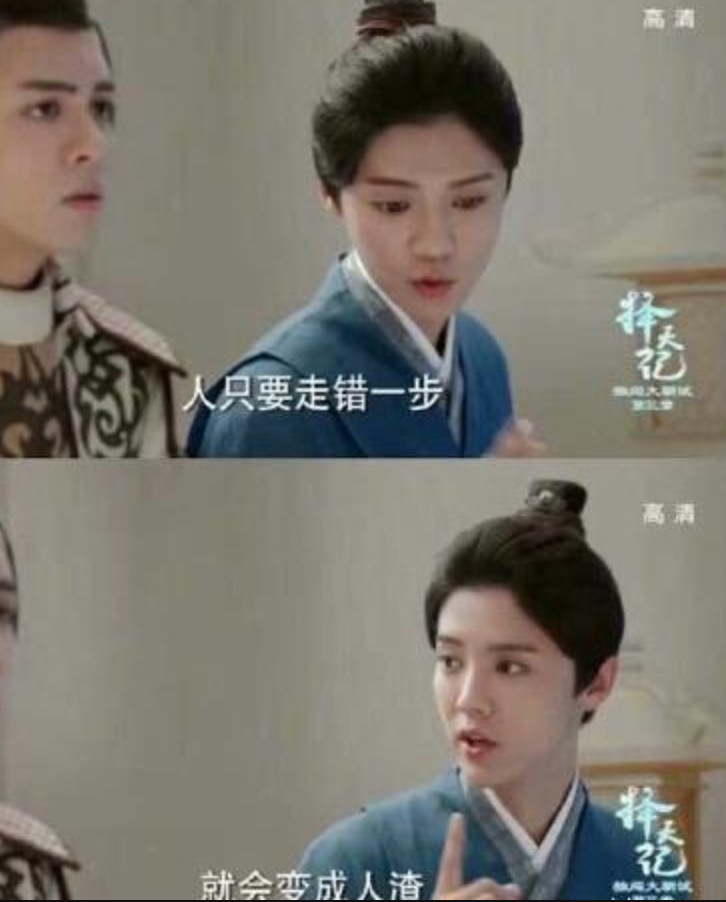
“If you get one step wrong in life/you'd become a bad person.” - gà-talk lines from the show Ze Tian Ji.
2. China’s young ones are getting increasingly social, thanks to technology, integrating with western norms, and just, well, growing up.
As mentioned in the beginning, me and Yan, two introverted, fundamentally pessimistic souls (call us sàng if you wish), agree that adulthood is really just a chunk of years loaded with awkwardness. And what's a better way to kill all those awkward years on earth than talking? C'mon!
Admit it or not, gà talk is one of those everyday struggles that escapism simply couldn't help (or maybe it is a form of true escapism, who knows). Just think about the many times that you bumped into someone who you are genuinely disinterested on the streets, tried to break ice with some random acquaintances in networking events, or happened to be placed in unprepared situations with the person you cared or respected too much of - all those times, of which your brain was in freeze mode yet you felt there was no other choice but to talk something out of nothing, just to make things look OK.
Think you are too good a socializer to gà talk? T.H.I.N.K. H.A.R.D.E.R.

China’ most popular video influencer Papi giving advices to her young fans about how to gà talk with their crushes.

And there we have Google for similar helps...
Wrapping Up
A month ago, we wrote a piece about sàng, and the argument we made there could, as we believe, be applied to the case of gà:
The present pressure brought by rapid economic growth and urbanization have forced Chinese netizens to come up with a set of self-defense mechanisms that’s full of satire yet also optimism. By openly joking about their personal life-struggles through Internet slangs, China’s most vocal, indigenous young generation have managed to cultivate a free, creative space for self-expression and identity-exploration – something still pretty rare in today’s China (me and Yan have been feeling very suffocated by China’s political climate since last month, so sorry about the pessimism here). For such, we think terms such as gà and sàng are brilliantly interesting and deserve to be highlighted. They are ways that today’s Chinese are talking, and ways to talk about today’s China from a historical and cross-cultural perspective.
What’s not so brilliant? Like just said, what have happened recently made us come to term with one unfortunate reality: what and how one may talk on the Chinese Internet (which looks so huge and fascinating from the outside) largely depend upon what and how one is allowed to talk. The ultimate reason that Chinese netizens have chosen to express their sentiments through terms such as sàng and gà is - no matter how much faith and optimism we inject in our explanation - there’s simply no other, or too few choices out there.
Life is tough, but we will gà through it, together.
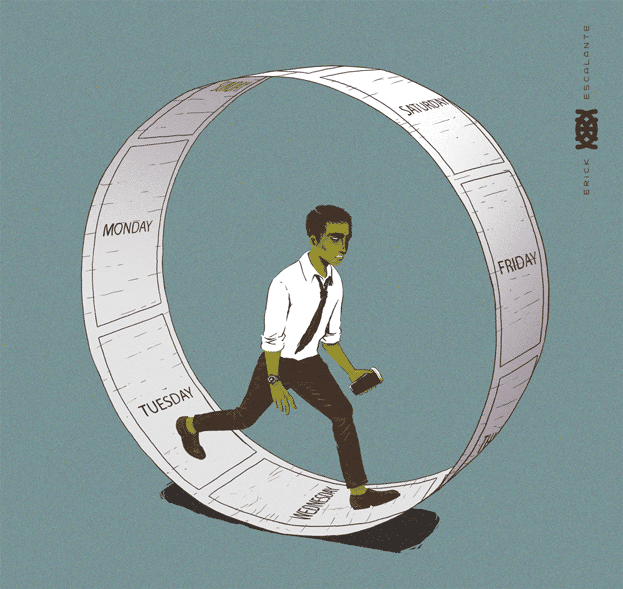
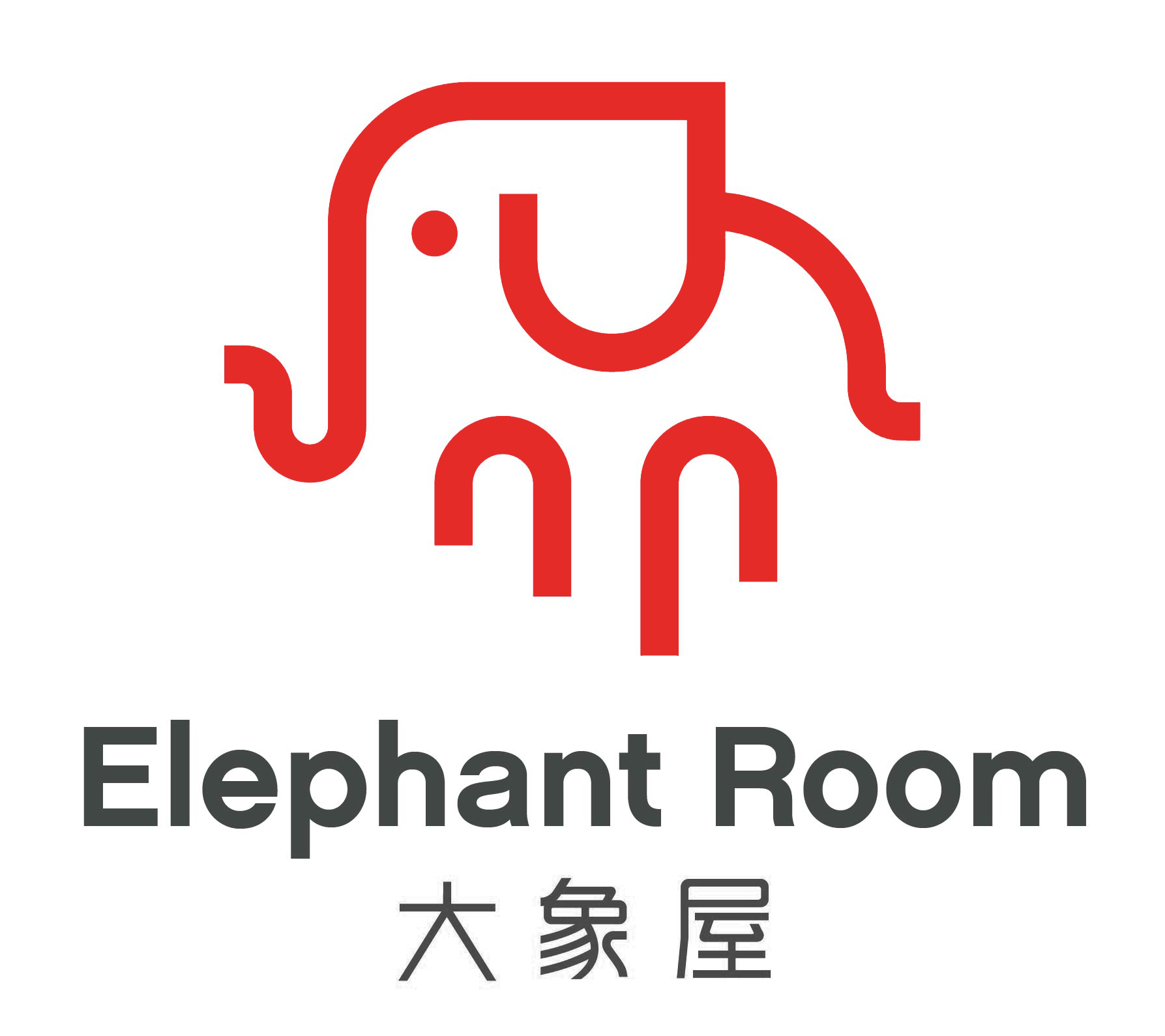
that was really great! Thanks so much for this informative piece.